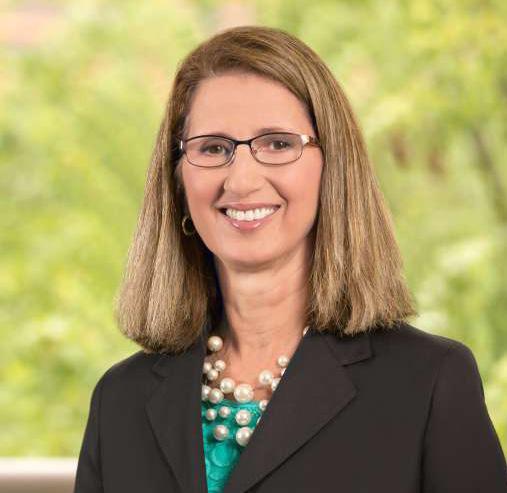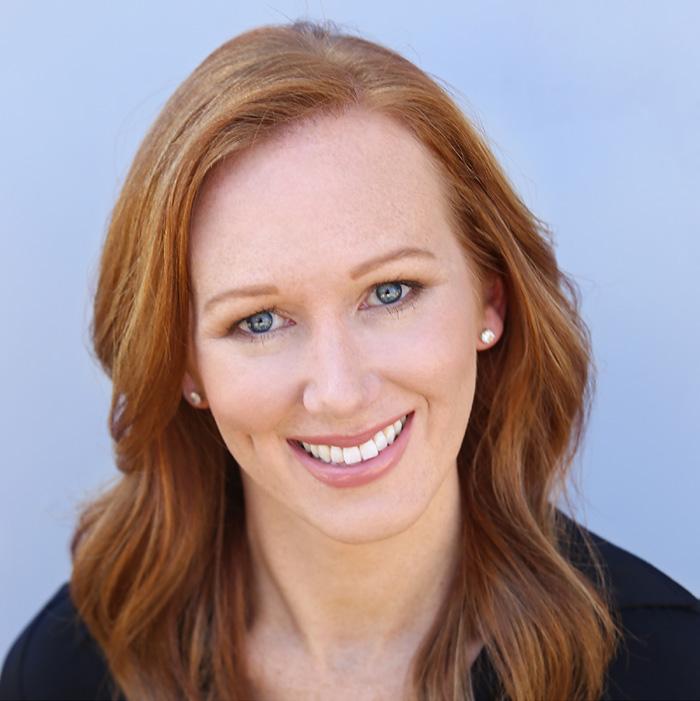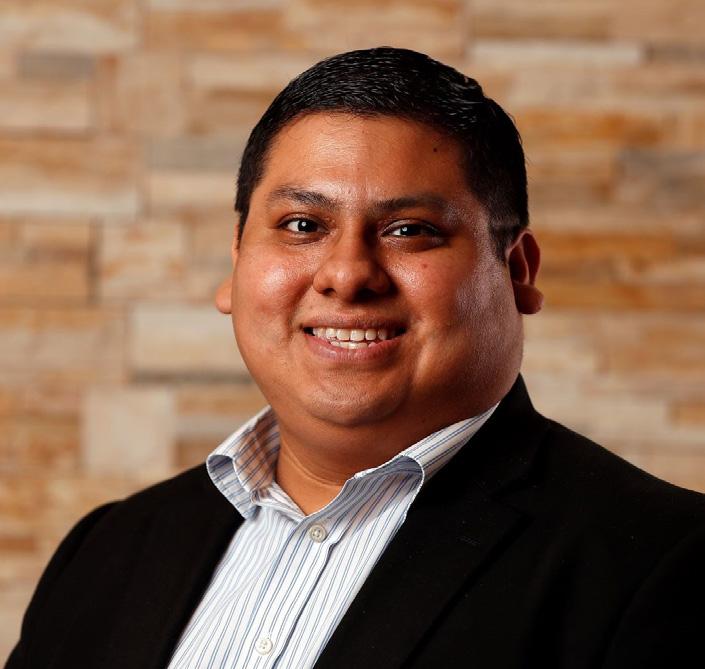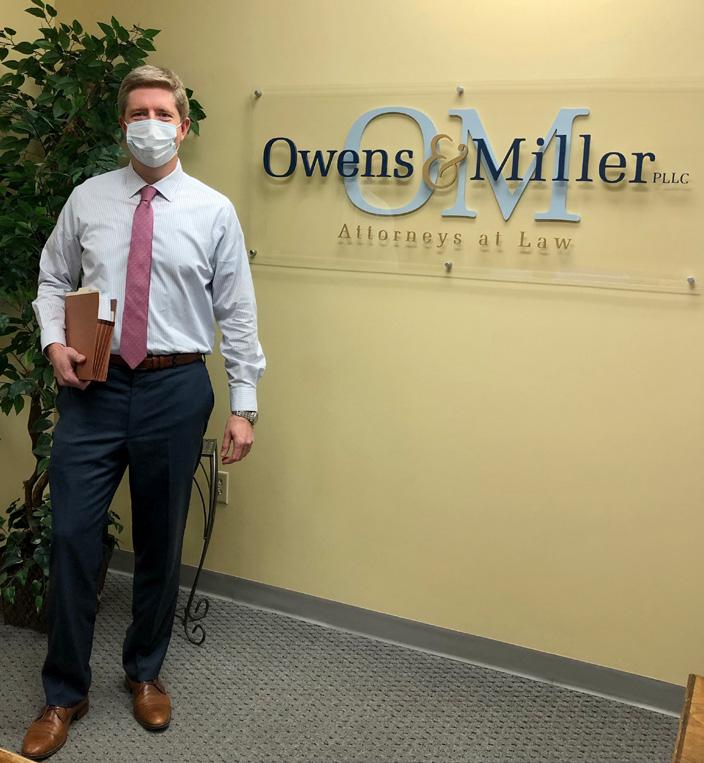
18 minute read
HOPE ON THE HORIZON
HOW WAKE COUNTY LAWYERS AND COURT OFFICIALS CONTINUE TO PRESS FORWARD AS WE NAVIGATE TOWARDS THE END OF THE COVID-19 PANDEMIC
In our Third Quarter 2020 Bar Flyer, we checked in with a few of our members and county officials on how their practice and lives had adapted during the beginning of the pandemic. Six months later, we are still living in a world of virtual meetings and social distance; however, with the hope that a nationwide vaccine roll out will bring an end to this unprecedented time. We checked in with some of our previous contributors and a few VIPs to see how things are going, and what their hopes are for 2021.
Advertisement

BY PAUL NEWBY | CHIEF JUSTICE, NC SUPREME COURT
IF THIS PANDEMIC HAS TAUGHT US ANYTHING, it is the importance of innovation and flexibility within the judicial branch in order to ensure that all North Carolinians have timely access to justice. I am so proud of how our courts have quickly adapted to the evolving nature of this situation. “Justice delayed is justice denied,” and this pandemic has shone a bright light on that phrase. The flexibility and resilience of all those in our legal community is a testament to their dedication to justice without delay. Certainly, the innovative use of technology has created new ways to provide access to the courts while honoring due process rights. The legal community should carefully consider which innovations should continue after this season.
As we move forward, our courts must meet our constitutional mandate that “[a]ll courts shall be open.... and [that] justice shall be administered without favor, denial, or delay.” N.C. Const. art. I, § 18. We must also proceed with appropriate caution to ensure the well-being of our stakeholders and the public. While responding to the evolving COVID-19 situation continues to present a challenge for state and local officials, I am encouraged by the vaccine development and distribution.
To help us safely comply with our constitutional mandate, I have requested that Governor Cooper include courthouse personnel among the front-line essential workers designated to participate in Phase 1b of the COVID-19 vaccination program. My hope is that those who wish to receive the vaccination can do so quickly, and we can take a major step forward in ensuring our court facilities are safe places to conduct the business of justice.
Nonetheless, local officials must continue to be vigilant and exercise good judgment as they responsibly manage their local court systems and carefully balance the needs of court employees, legal professionals and the general public. To that end, all of us have a role and I ask that you join in that effort. WBF

BY ROSE STOUT | SMITH DEBNAM
WE’VE SURVIVED AND SURVIVED VERY WELL. Life looks and feels very different than it did early in the pandemic. There were clearly feelings of uneasiness, uncertainty and, quite honestly, lots of fear. However, time is a wonderful friend. Life remains different in the practice of Family Law, but we have made so much progress. Our days are now filled with zoom appointments to meet clients; zoom mediations, when the mediator puts one party in one holding area and another party in a second holding area; virtual depositions; and WebEx hearings.
We have successfully mastered bridging the physical distance that COVID-19 has created with our clients. Now that court has resumed many “in person” hearings are taking place, we now “double” mask up and head to court, able to represent our clients, as we did in the past. Again, it is different because, as many of you know, wearing a mask and speaking with a mask, are quite challenging. However, we are able to represent our clients and provide families with much needed resolution. Emotionally and financially many families continue to struggle. Therefore, practicing family law during COVID-19 has been critical to our families.
2020 was an amazing year. I learned that I am not as much of a dinosaur as I thought and that where there is a will, there really is a way! Here’s to a new way of practicing law effectively. WBF

BY PAUL RIDGEWAY | SENIOR SUPERIOR COURT JUDGE
2020 WAS HARD. It was hard on us personally. It was hard on the legal profession. And it was hard on the courts. But the legacy of 2020 is not the hardship we’ve all endured. Rather, the more sustaining legacy is what we have learned, what we have overcome, and what we have accomplished.
In the Wake County courthouses, over just one weekend in March, we shifted from operating about 25 bustling courtrooms to operating only six courtrooms, limited to only those tasks mandated by law or essential to the administration of justice during a pandemic. Then, three months later, we eased up to operating about 22 courtrooms, but with greatly reduced dockets. In November, we safely conducted a criminal jury trial – the first jury trial in over 35 weeks. But, in December, we retreated, and returned our operations to six courtrooms in response to heightening pandemic concerns. Along the way, we’ve worn masks, socially distanced and submitted to health screenings at every entrance. We’ve stood in our magnificent courtrooms that are now littered with yellow and red warning stickers, hand sanitizer and cleaning supplies. Some of our colleagues have tested positive for COVID-19. Some of our colleagues are anxious, lonely and afraid.
Yes, these were tough days in our courthouses. But we quickly learned that we were well served by the collaborative leadership model cultivated by people like Robert Farmer, Don Stephens, Robert Rader and Colon Willoughby.They, along with many others, instilled a strong culture where decisions in our courthouses are made as a team after listening, debating, and compromising. And, when inevitable mistakes are made, solutions are sought, not blame. The collective wisdom, leadership and can-do attitude displayed by the agency heads in our courthouses has been remarkable from leaders like District Attorney Lorrin Freeman, Clerk Blair Williams, Chief District Court Judge Debra Sasser, Public Defender Deonte' Thomas, Chief Magistrate Chris Graves, Sheriff Gerald Baker, Trial Court Administrator Kellie Myers and our Wake County champion, Kelli Braunbach.
We’ve learned that the way we’ve always done things may not be the best way – and 2020 may have inspired lasting innovation. We’ve moved great swaths of our operations to video teleconferencing. Since March we’ve conducted approximately 750 civil superior court motion hearings via WebEx. Our Superior Court judges have remotely issued nearly 4,000 search warrants and law enforcement investigatory orders. These are measures that will likely survive the pandemic because they simply work, are efficient and increase access to our courts. But, at the same time, we’ve also realized the irreplaceable value of human contact and personal interaction. There is no substitute for an in-person crossexamination conducted by a skilled advocate. Sometimes a face-to-face meeting is the only way to hammer out an emotional settlement. The firm handshake, the pat on the back and the friendly hug are all indispensable hallmarks of collegiality that is essential to our profession.
We’ve learned about the power of dialogue. In the wake of the tragic death of George Floyd, the WCBA Diversity, Equity and Inclusion Committee and the Bench Bar Committee hosted a forum titled “Where Do We Go From Here? A Collaborative Community Forum to Create Change.” The remarkably candid dialogue opened eyes to subtle acts, often unintentional, that are barriers to inclusiveness and equity. And we’ve learned about the power of collective good will. When state, local and courthouse face mask mandates were imposed for entry into our court facilities, the WCBA lawyers in our community responded in an incredible show of generosity by donating nearly 30,000 masks so that the public and our staff could conduct the business of the courts as safely as possible.
It is tempting to look back on 2020 as a year of catastrophe – where America sickened, burned and bled, and where citizens divided themselves into irreconcilable camps heaping scorn upon their ideological foes. But I think the story of 2020 is better told by what we’ve seen from our friends, our families, our colleagues, our community and our profession. We will return some day, hopefully soon, to our bustling courtrooms, our WCBA gatherings, our restaurants, bars and football games. But I, for one, hope not to forget the satisfaction of a quiet conversation away from crowded places, the long walk in the woods with a family memberand the joy of a Zoom call with a little nephew to watch him sing. And collectively, we should not forget the resilience, innovation and goodwill of our profession and colleagues in the Bar. Because that, in 2020, is who we really were. WBF

BY LORRIN FREEMAN | WAKE COUNTY DISTRICT ATTORNEY
WHEN COURTS ABRUPTLY reduced operations in March by Order of the Chief Justice, none of us anticipated that come January we would still be struggling with how to manage court dockets during a world pandemic. From June until just a few weeks ago, we operated all the usual criminal courts with anything but usual practices. We have reduced dockets, worn masks, socially distanced and changed calendar call procedures. We’ve conducted one jury trial pursuant to a judicial district plan approved by the Chief Justice where jurors sat in the gallery, the witness testified from the jury box and the judge was located behind counsel tables turned to face the jury. In all earnestness, there aren’t many of the “new ways of operating” that we wish to continue when this pandemic has passed.
As I wrote about several months ago, teamwork amongst the court leaders has been critical during this time. Even though we have transitioned to a new Chief District Court Judge and a new Public Defender during the past 10 months, the strong collaboration and communication has continued. Teamwork within our office has also grown as we have been forced to nimbly react to situations beyond our control.
Perhaps the most important thing to come out of this period is the prioritization of good health and the tendency to worry and care about each other in an adversarial fast-paced high-volume system that often fails to provide much space for any of that. If there is one thing I hope continues beyond COVID-19, it is the sense of unity that is built when we collectively endure hardship and come out the other end. And we will. WBF
BarCARES®

COVID PUBLIC HEALTH EMERGENCY
BarCARES is a confidential, short-term intervention program provided cost-free to members of participating judicial district bars, voluntary bar associations and law schools. To learn more about BarCARES visit https://www.ncbar.org/members/barcares/
BarCARES program services have always been and continue to be available via telephone or telehealth delivery.
HRC Behavioral Health & Psychiatry, P. A. is the practice that manages the delivery of BarCARES services.
HRC Behavioral Health & Psychiatry, P. A. has operated without pause during the COVID-19 public health emergency. Clinicians within HRC and clinicians across the state to whom BarCARES referrals may be made may provide services by telephone or telehealth [video + audio].
To request a referral to a provider please contact the BarCARES coordinator at 919-929-1227 or 1-800-640-0735
For urgent concerns: if you need to speak to someone immediately, call 919-929-1227 or 1-800-640-0735. The HRC answering service will place after business hours calls with our on-call provider.

BY KELLIE Z. MYERS | WAKE COUNTY TRIAL COURT ADMINISTRATOR
THE COVID-19 PANDEMIC created a unique challenge for our courts. When asked what I think will continue, professionally, once the COVID-19 pandemic becomes a distant memory, my immediate thoughts focused on court operation changes, such as WebEx hearings, virtual meetings and working remotely.
Upon further reflection, I realized that the COVID-19 pandemic has given me an immeasurable appreciation for the importance of a strong leadership team who share a common goal: Protecting the health and safety of the pubic and court personnel while upholding the constitutional mandate that courts remain open. As our Wake County court leadership team transitioned from focusing on urgent decision-making to strategic, recovery-focused planning, it became clear that communication, respect and courage are integral to successful crisis leadership at any stage. It is my hope that these qualities endure within our profession long beyond the current public health crisis.
Leaders must communicate clearly, providing honest and reliable information, even when under immense pressure to act promptly. During the last 44 weeks, our court leadership team has maintained around-the-clock contact with each other to ensure that we are promptly responding to the frequent challenges resulting from COVID-19. We have endeavored to protect the safety of the public and court personnel while ensuring that courts are open by making decisions regarding court operations that are informed by state and local health officials, even when faced with harsh criticism. The COVID Coordinator and members of the court leadership team ensure that prompt and current information is made available to the public, to personnel, and to the bar through regular posts to the WAKE COUNTY COVID-19 UPDATES PAGE, email notifications, signage in court facilities and social media. Reliable, respectful and accessible information will remain essential to our profession and to our courts.
When the Wake County court leadership team makes decisions, we do not always agree from the outset regarding the best course of action; however, we listen to each other, give others’ opinions sincere consideration and do not assign blame to other team members when mistakes are made. Showing respect for others fosters feelings of trust and a sense of security, reduces conflict and improves communication. Respect is more than simply a lack of disrespect – it requires you to pay due regard to others and their opinions, even when you may not agree. As leaders, we must show respect to successfully engage in the conversations that are necessary to address the pandemic issues before us and to successfully navigate the “new normal” for our profession.
When situations are uncertain, our initial reaction may be to freeze out of fear of making the wrong decision; however, this inaction leads to unnecessary delays and mistrust, creating chaos during times of crisis. Leadership requires the courage to step forward during difficult times, to be innovative, and to be adaptive. The members of our court leadership team left their egos at the door as we made difficult decisions and implemented new ways to operate, with the knowledge that we would need to revisit our decisions over and over (and over) again.
As the COVID-19 pandemic continues to present extraordinary challenges to our court system, I remain grateful to our court leadership team and to the members of our bar for their communication, respect and courage. I look forward to navigating the “new normal” in 2021 with each of you. WBF

BY BILL YOUNG || HATCH, LITTLE AND BUNN
REMAIN FLEXIBLE. Remain patient. In my last submission, our criminal defense team was adapting to the introduction of the COVID-19 into our work environment. Generally, that environment includes our offices, the courthouse and the Wake County Detention Center. Initially, our defense team was able to separate ourselves into those three sectors in order to avoid cross-contamination.
However, that was also before the Justice Center reopened. The reopening of the Justice Center necessitated an “all hands on deck” approach. As a result, my colleagues James Little, Aaron Goforth and I have found ourselves back in the office, back in the courtrooms and back in the Detention Center. Criminal defense attorneys are permitted very little authority in setting the court calendars. Our statutes bestow that power upon the prosecution.
When criminal courts reopened in June, the accumulation of cases presented a courthouse packed with defendants, officers, and attorneys. Our presence was essential. Thus we relied on the tools we had. We continued to offer clients Zoom meetings. We often utilized WebEx for 50B hearings. We maintained our office protocol of increased partitions, temperature screenings and lots of hand sanitizer.
The end of 2020 did bring a new court closure that was much needed with rising COVID-19 numbers. However, while numbers continue to rise, that closure is set to expire later in January. There are many questions as to how court will resume. As court protocol is released, and policies are implemented and amended, the thing that will be most important is our flexibility and patience. This is a time when we must work together with all components of our justice system to stay healthy while upholding the Constitution. We have an obligation to keep our courts open to the people. We will continue to do so with our flexibility and patience. WBF

BY MEGHAN KNIGHT | | LYNCH & EATMAN
THE LAST NINE MONTHS have not been easy. The days blur together. Everything seems complicated. Finding stretches of time to concentrate or work on estate plans is tough when work days are peppered with interruptions from kids who need help with virtual school. It is hard to look away from anxiety-inducing news about the pandemic and our nation’s struggles. Our mortality is right in our faces.
I miss seeing family and friends, and being able to hug the ones I do see. I miss meeting with clients and colleagues in person, for as long as we want, without the necessity of voices muffled by face masks. The exhaustion from it all sneaks up on me.
But I tell myself that we likely are more than halfway through the worst of it. I remind myself to appreciate this time with my family in our little bubble. I go on walks with my husband. I tell myself to be patient. I do the best that I can. I try to forgive myself for not doing everything perfectly.
I expect it will be a long, slow slog towards normalcy. I expect it will be easier to work from home when life necessitates it. I expect this experience has given my children invaluable self-management skills. I expect the pandemic has made it easier for clients, especially younger clients, to contemplate their own mortality. I expect that even when meeting in person becomes less risky, plenty of clients will still prefer the ease and reduced time commitment of a virtual meeting.
And I am hopeful. Hopeful that vaccinations are underway. Hopeful because my children are so resilient. Hopeful because the dots of yellow from the forsythia in my yard mean springtime is just around the corner. Hopeful that even though it will be a long, slow slog towards normalcy, we will get there. Hopeful because we have already made it this far. WBF


BY JOSUE JIMENEZ|| CAMPBELL LAW SCHOOL
ASIDE FROM TEACHING US what meetings could be emails, this pandemic has also shown us how much more far reaching our impact can be with technology. From August to November law school admissions professionals are normally traveling nonstop all over the country. This past year on days when I wasn’t in the office, however, my traveling consisted of walking from my bed, to the coffee machine and then to my table. This past virtual recruitment season allowed us to go to so many more events than we would normally be able to.
Although there are many benefits to this new technology dependent world, I think it emphasized to many of us how much we need in-person interaction. Once it is safe to travel again, I’m certain that we will primarily go back to the traditional form of recruitment, but like many other organizations, webinars and virtual meetings will also now become permanent aspects of law schools’ recruitment efforts.
On a personal level, as much as being connected has become a huge part of our lives, the importance of disconnecting was also highlighted for me in 2020. I’ve become even more appreciative of any time I get to spend with family and friends and being 100% present in those moments is something I plan on continuing to do in 2021 and beyond. WBF

BY WILL OWENS | OWENS & MILLER
ONCE THE INITIAL stay home order was lifted, our firm quickly returned to the office. Though we can work from home, we prefer the collaborative nature of face-to-face interaction that doesn’t quite translate via Zoom. While this is not feasible for many firms and other organizations, thankfully, there are only five of us in our office and we all have private offices with doors, so we are able to socially distance. Many things are different. When we are not in our offices, we are all “masked up.” Conference room lunches and birthday cakes have been replaced with individual takeout in our offices and individual cupcakes.
Though we are physically in our office, much of the work is still conducted remotely. As COVID-19 began to wreak havoc on the traditional face-to-face practice of law, I did not like the idea of remote depositions and mediations. I declined to schedule any for several months, preferring to wait out COVID-19 and do things the oldfashioned way, in person so I could “size up” the other side. Once it became clear COVID-19 was not going away any time soon, I reluctantly began to conduct depositions and mediations via video conference. Though they are far from perfect, there are some advantages, including the increased ease of scheduling. Removing the obstacle of travel time for parties and counsel opens up the calendar quite a bit. However, I do miss the personal interaction with opposing counsel during breaks. Over the years, I’ve learned quite a bit about my cases during recesses at depositions. The down time is not quite the same on a Zoom call. I look forward to settling a case by the hallway water cooler this year.
While depositions via Zoom are not quite the same (in my opinion), I have greatly enjoyed the ease of attending committee meetings by video conference. There is a lot to be said for getting in and getting out. For many committee meetings, I’m convinced attendance is actually up. That said, I look forward to breaking bread with many of you at the Woman’s Club in 2021. WBF








